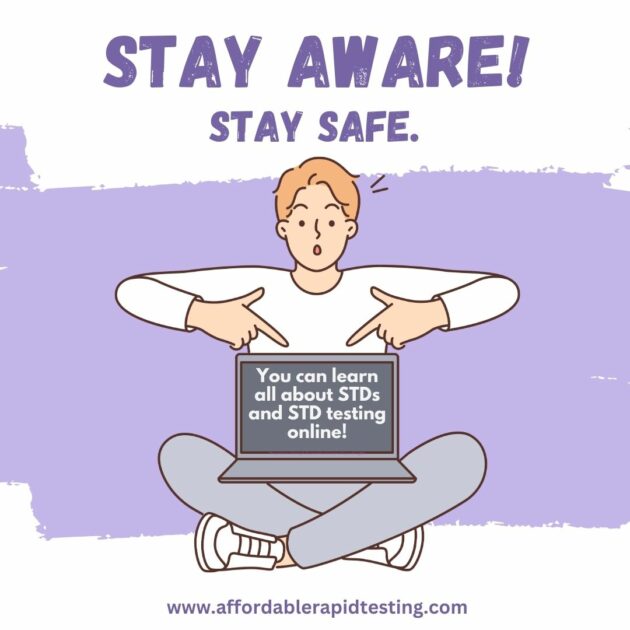STDs are primarily transmitted through sexual encounters, including oral, anal, and vaginal intercourse, but can also be contracted through other means, such as from mother to unborn child or through kissing. Anyone, regardless of sexual history, can be infected. Untreated, STDs can cause serious health issues like infertility, blindness, and even death.
This underscores the importance of STD testing. Testing is one of the few reliable ways to confirm if you have an infection, making it essential for early detection and treatment. Here are some other ways to verify if you have been afflicted with one.
Common STD Symptoms
If you have ever been sexually active, it’s important to be aware of the most common STDs and their symptoms. Here’s an overview of common STD symptoms to help you identify potential infections:
- HIV: Symptoms include fever, rash, chills, sore throat, night sweats, fatigue, swollen lymph nodes, and muscle aches.
- Chlamydia: Symptoms include pain during urination and intercourse, bleeding between periods, unusual vaginal discharge, abdominal or pelvic pain, and post-coital bleeding.
- Syphilis: Symptoms include fever, sore throat, swollen lymph nodes, muscle aches, fatigue, chancre (sores), hair loss, weight loss, and headaches.
- Trichomoniasis: Symptoms include foul-smelling genital discharge, painful urination, and genital itching.
- Gonorrhea: Symptoms include unusual discharge, abdominal or pelvic pain, pain during urination and intercourse, bleeding between periods, pain in the testicles, rectal discharge and itching, light sensitivity, eye pain, pus-like discharge from the eyes, and itchy or sore throat.
- Herpes: Symptoms include blisters or sores in the oral or genital area, fever, muscle aches, swollen glands, abnormal genital discharge, painful urination, and bleeding between periods.
- Hepatitis: Symptoms include fever, abdominal pain, fatigue, appetite loss, vomiting, nausea, dark-colored urine, and clay-colored bowel movements.
If you are experiencing any of the above symptoms, consider getting tested for STDs. Early detection can aid in prevention and in the long run, break the chain of transmission.
Things to Keep In Mind To Verify If You Have Contracted an STD
Determining if you have contracted an STD is crucial for maintaining your health and preventing the spread of infections. Here are the steps you can take to verify if you are affected by an STD:
- Get tested: The most reliable way to verify if you have an STD is to get tested at a healthcare facility. Testing provides accurate results and helps in early detection and treatment.
- Observe symptoms: Monitor your body for any symptoms such as unusual discharge, pain during urination, sores, or rashes. Early recognition of symptoms can lead to prompt medical attention and better outcomes.
- Routine check-ups: Regular check-ups with your healthcare provider can help catch STDs early, even if you are asymptomatic. Consistent medical visits ensure any potential infections are identified and treated quickly.
- Ask your partner: Communicate with your sexual partner(s) about their sexual health and any recent tests they may have had. Open dialogue can help you both stay informed and take necessary precautions.
- Follow-up: If you test positive, follow up with your healthcare provider for confirmation and treatment. Proper medical guidance is essential for effective treatment and to prevent complications.
Affordable Rapid Testing, AZ: The One and Only STD Testing Service You Need
Thanks to technological advancements, verifying if you have an STD is now more convenient and reliable than ever. Affordable Rapid Testing, a top testing center in Phoenix and Scottsdale, Arizona, utilizes advanced lab technology to detect common STDs like Chlamydia and Gonorrhea with high accuracy in just minutes.
Their services are confidential, quick, and affordable, making STD testing a hassle-free experience. To book an appointment, simply visit their website.


